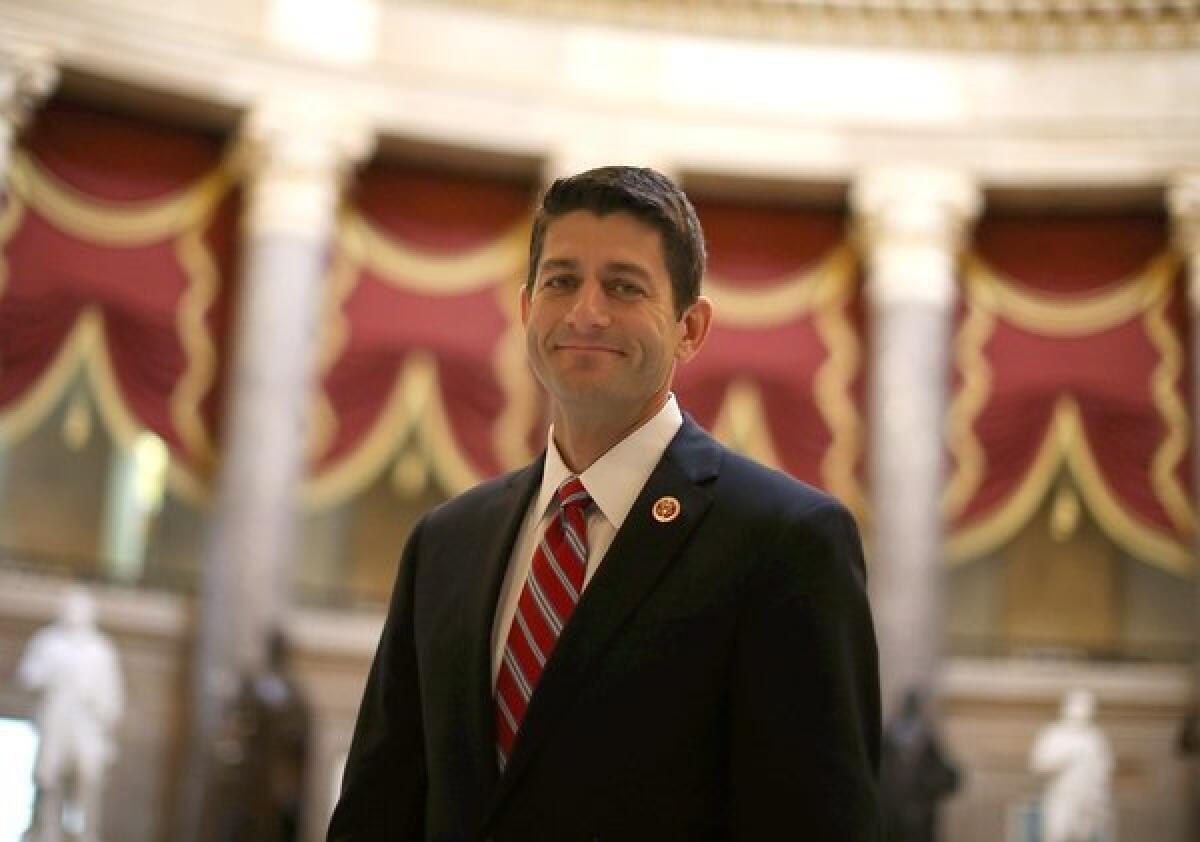In government shutdown, can either side take yes for an answer?

Republicans have floated a lot of proposals for ending the government shutdown they instigated last week, but they’ve typically shared a fundamental flaw: They try to embarrass Democrats into signing on rather than offering something that Democrats actually want.
By Wednesday, though, a handful of Republicans in the House and the Senate were circulating proposals with real sweeteners in them for their opposite numbers. They may not go far enough to bring the two sides together, but they raise an interesting question: Have Democrats left themselves room to accept anything short of complete capitulation by the GOP?
In the Senate, Susan Collins (R-Maine) suggested a shutdown-ender that would give agencies more flexibility to spend dollars than they received under the across-the-board sequester cuts enacted in 2011. Her proposal also would end the tax on medical devices, a change in the 2010 Patient Protection and Affordable Care Act (a.k.a. Obamacare) that many Senate Democrats support despite the White House’s opposition.
In the House, Budget Committee Chairman Paul D. Ryan (R-Wis.) is trying to rally support behind temporarily funding the government and raising the debt limit in exchange for a binding agreement to negotiate lower deficits and entitlement changes. In a Wall Street Journal op-ed Wednesday, Ryan offered this carrot:
“For my Democratic colleagues, the discretionary spending levels in the Budget Control Act are a major concern. And the truth is, there’s a better way to cut spending. We could provide relief from the discretionary spending levels in the Budget Control Act in exchange for structural reforms to entitlement programs.”
In other words, he’s willing to scrap the sequester cuts if Democrats agree to slow the growth of entitlement programs, such as Medicare and federal employee pensions. And the changes he mentioned in the op-ed didn’t appear to be deal-busters; they included such things as raising Medicare premiums for upper-income retirees and combining Medicare Part A (which covers hospital visits) and Part B (which covers physicians’ services) into a single program.
According to The Hill, though, a key piece of the deal is for Democrats to agree in advance to an outline of the changes, rather than leaving it to negotiators to do the necessary horse-trading. As Rep. John Fleming (R-La.) told The Hill, “I don’t think there’s any interest ... in short-term debt ceiling increases or short-term [government funding] unless we have a deal.”
Therein lies the problem, not just for Ryan’s and Collins’ proposals but for anything the Republicans may offer. Democrats say they’re willing to negotiate over whatever issues Republicans want to negotiate. They’re just not willing to do so “at the point of a gun.” In other words, they want the government funded and the debt ceiling raised, at least temporarily, before they sit down to talk.
The Times’ editorial board backed this position Wednesday, writing, “Rather than prolonging the shutdown and raising the prospects of a ruinous default, House Republicans should agree to reopen federal agencies, raise the debt limit and then begin the long, hard process of negotiating the elusive ‘grand bargain’ on the budget that both sides want.”
But House Speaker John A. Boehner (R-Ohio) has called this sort of approach “unconditional surrender.” The Republicans’ leverage in any talks comes from the shutdown and the threat not to raise the debt ceiling. In their view, giving those up without extracting anything more than an agreement to talk would guarantee that the subsequent negotiations with Democrats would produce nothing.
Another problem is that Democrats in the House don’t trust Ryan when he says he’s looking for “modest” changes that President Obama has already endorsed. In a statement Wednesday, Rep. Chris Van Hollen of Maryland, the top Democrat on the budget committee, said Ryan was demanding that Democrats “adopt the Republican budget and policy agenda” in exchange for releasing the government funding and debt ceiling bills they’ve taken hostage.
“If the president were to threaten to veto the full faith and credit of the United States unless Republicans adopted his budget and policy agenda, Republicans would be screaming abuse of power. Yet that is exactly what they are doing,” Van Hollen said.
So it all comes down to sequencing, or how to get to the place both sides say they want to be -- the negotiating table -- without either one appearing to give away the store. Until someone cracks that code, both sides seem willing to stay their current courses.
According to the National Review, Republicans are buoyed by polls showing that the public is growing increasingly disaffected with the Democrats’ refusal to negotiate until the shutdown ends. They also feel the problems at the new health insurance exchanges are helping their push for a delay in the 2010 law’s mandate that virtually all adult Americans obtain coverage next year or pay a penalty.
Democrats, meanwhile, point to national polls such as the one released Wednesday by Gallup as a reason to hold firm. The Gallup poll showed that the GOP’s popularity has dropped sharply to a new low -- 62% of the country views the party unfavorably, including 27% of the Republicans surveyed. But it found that Democrats’ popularity has dipped since the shutdown began too.
So while Republicans have a big head start in the race to the bottom, both parties are headed in the same direction.
ALSO:
On letters from climate-change deniers
Olympia Snowe: This is no way to run a country
The real story behind all those Obamacare waivers
Follow Jon Healey on Twitter @jcahealey and Google+
More to Read
A cure for the common opinion
Get thought-provoking perspectives with our weekly newsletter.
You may occasionally receive promotional content from the Los Angeles Times.











